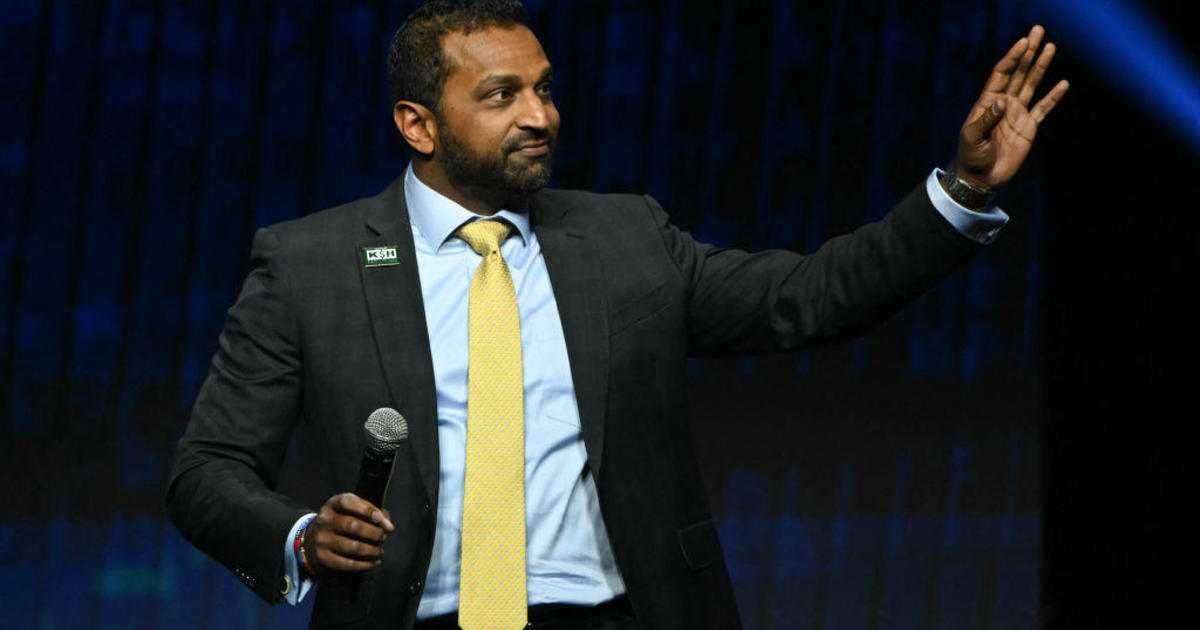Kash Patel, President-elect Donald Trump’s pick to lead the FBI, was recently informed that he was the target of a potential Iran-backed cyberattack. This alarming revelation came from two individuals familiar with the matter who confirmed to CBS News that Patel’s communications were the primary focus of the hackers. The extent of the breach and the level of access the hackers gained to Patel’s data is currently under evaluation.
The FBI, when approached for comment, declined to provide any information on the matter. CBS News also reached out to the Trump transition team for their response but did not receive a comment at the time.
The news of Iran’s potential targeting of Patel was initially reported by Semafor, a development that raised significant concerns given the escalating tensions between the United States and Iran. This incident follows months of warnings from various federal agencies, including the FBI, about Iranian cyber activities aimed at Trump campaign staff in the lead-up to the 2024 presidential election.
In a noteworthy move, Justice Department prosecutors charged three members of Iran’s Revolutionary Guard Corps in September for orchestrating a broad hacking campaign against U.S. officials, particularly those associated with Trump. This marked a significant escalation in the ongoing cybersecurity threats posed by Iran to the United States.
Earlier in the year, in August, Microsoft disclosed that Iran was intensifying its efforts to influence the November election. One notable incident involved the targeting of a presidential campaign through an email phishing attack, underscoring the sophisticated tactics employed by cyber adversaries to infiltrate sensitive systems.
The targeting of Patel by Iran is part of a broader pattern of aggression directed towards Trump and his allies since the killing of Gen. Qassem Soleimani in a U.S. airstrike in Baghdad in 2020. U.S. officials have repeatedly warned about the escalating cyberattack campaigns orchestrated by Iranian entities against American interests, both domestically and abroad.
Kash Patel, a 44-year-old attorney and staunch Trump loyalist, has a rich background in intelligence and defense roles, having served in various capacities during Trump’s first term. Notably, he was the chief of staff to the secretary of defense and represented Trump at the National Archives and Records Administration. Patel gained prominence for his role as an aide to former Republican Rep. Devin Nunes of California, where he vehemently opposed the investigation into Russian interference in the 2016 election.
Over the years, Patel held key positions within the Trump administration, including serving on the National Security Council, acting as a senior adviser to acting Director of National Intelligence Ric Grenell, and later as the chief of staff to acting Defense Secretary Christopher Miller. His unwavering support for Trump and his active involvement in various high-profile cases have made him a polarizing figure within political circles.
As the news of the cyberattack targeting Patel unfolds, concerns about the vulnerability of critical infrastructure and government officials to foreign interference continue to mount. The incident serves as a stark reminder of the evolving nature of cybersecurity threats and the pressing need for robust defense mechanisms to safeguard sensitive information and national security interests.
In a rapidly changing digital landscape, where state-sponsored cyberattacks are becoming increasingly sophisticated and prevalent, the United States faces significant challenges in protecting its critical assets from malicious actors. The Biden administration, set to take office in January, will inherit a complex cybersecurity landscape fraught with geopolitical tensions and evolving threats, necessitating a strategic and coordinated approach to address these challenges effectively.
As the investigation into the cyberattack targeting Kash Patel progresses, the implications of this incident on national security and diplomatic relations with Iran remain to be seen. The need for enhanced cybersecurity measures, information sharing, and international cooperation to counter cyber threats is more critical than ever, underscoring the imperative for proactive and collaborative efforts to safeguard the nation’s digital infrastructure and combat cyber adversaries effectively.









